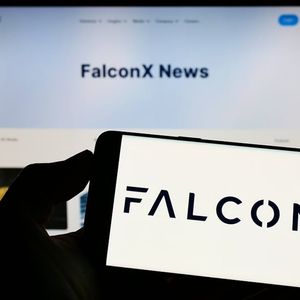BitcoinWorld Shockwave: OpenAI’s $200M DoD Contract Jolts Microsoft Relationship In the fast-paced world of technology and government contracts, a recent announcement sent ripples across the industry, particularly affecting the dynamic between two major players. OpenAI revealed it secured a significant contract with the U.S. Department of Defense (DoD), valued at up to $200 million. For those following the intersection of AI and national security, and even its broader implications for tech markets often mirrored in crypto volatility, this development is crucial. What Does the OpenAI DoD Contract Entail? OpenAI’s agreement with the DoD focuses on leveraging its advanced AI models to develop prototype systems. The stated goal is to assist the agency with administrative tasks and other critical functions. OpenAI provided examples such as: Streamlining healthcare access for service members. Organizing and simplifying data from various defense programs. Enhancing proactive cyber defense capabilities. The company emphasized that all applications developed under this contract must align with OpenAI’s existing usage policies and guidelines. The DoD’s own description of the award was slightly more direct, mentioning the development of “prototype frontier AI capabilities to address critical national security challenges in both warfighting and enterprise domains.” This reference to “warfighting” immediately raised questions, given OpenAI’s public stance on the use of its technology. Navigating the Shifting Sands: AI in Military Applications The mention of “warfighting” domains by the DoD highlights a complex and evolving area: the application of AI in military contexts. While OpenAI’s guidelines explicitly prohibit individual users from using its tools for developing or using weapons, the company quietly removed an explicit ban on “military and warfare” from its terms of service in January 2024. This change, preceding the DoD contract announcement, suggests a potential shift or clarification in how OpenAI views governmental and defense-related uses of its technology. The push for advanced AI capabilities within the military is also fueled by geopolitical concerns. Prominent figures in the tech world, such as Marc Andreessen of Andreessen Horowitz (an OpenAI investor), have framed the competition in AI development between countries like the U.S. and China as a modern “cold war.” In this climate, it’s perhaps unsurprising that the DoD is keen to integrate cutting-edge AI, including models from leading labs like OpenAI, for a variety of purposes, potentially including those touching upon defense operations. The Elephant in the Room: The Microsoft OpenAI Dynamic Beyond the specifics of the contract, one of the most intriguing aspects of this deal is its potential impact on the relationship between OpenAI and its largest investor, Microsoft. Microsoft has a long-standing, deep relationship with the U.S. government, holding thousands of contracts worth hundreds of millions of dollars. The company has invested heavily and worked for decades to implement the stringent security protocols required for government agencies, particularly the DoD, to use its cloud services like Azure. Microsoft has been actively integrating OpenAI’s models into its own offerings, including the Azure OpenAI Service. In fact, it was only in April that Microsoft announced that its Azure OpenAI Service had received approval from the DoD for use across all classified levels. This positioned Microsoft as the primary channel for the DoD to access OpenAI’s frontier models securely. However, OpenAI’s direct contract with the DoD for up to $200 million signifies the government agency going straight to the source for specific prototype development. While this doesn’t necessarily mean the DoD will abandon Microsoft’s integrated services, it certainly represents OpenAI building its own direct relationship and revenue stream with a major government client that Microsoft might have expected to service primarily through its platform. From Microsoft’s perspective, seeing its key partner secure such a substantial direct deal with one of its most important customers likely feels like a competitive move. OpenAI’s Growing Direct Engagement with AI in Government This DoD contract is part of a larger strategic initiative by OpenAI called “OpenAI for Government.” This program aims to consolidate and expand OpenAI’s direct sales and collaboration efforts with various government agencies. According to OpenAI, this includes existing relationships with entities like the U.S. National Labs, the Air Force Research Laboratory, NASA, NIH, and the Treasury Department. This move signals OpenAI’s increasing ambition to sell its technology directly to large enterprise and government clients, rather than solely relying on partnerships like the one with Microsoft. While partnerships are valuable for scale and integration, direct contracts offer higher margins and greater control over the client relationship and use cases. As AI in government becomes more prevalent, securing these direct channels is strategically important for OpenAI. What This Means Going Forward The $200 million OpenAI DoD contract underscores the critical role advanced AI is expected to play in national security and government operations. It highlights the intense competition not just between nations in developing AI, but also between tech giants vying for lucrative government business. The contract presents both an opportunity for OpenAI to prove its capabilities in sensitive environments and a potential point of friction in its crucial partnership with Microsoft, which has heavily invested in being the bridge between OpenAI and enterprise/government customers. How this dynamic evolves will be a key story to watch in the tech world. To learn more about the latest AI market trends, explore our article on key developments shaping AI features. This post Shockwave: OpenAI’s $200M DoD Contract Jolts Microsoft Relationship first appeared on BitcoinWorld and is written by Editorial Team



















